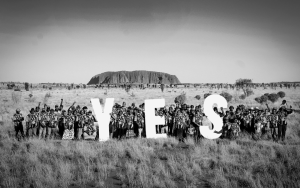As the African Union Mission winds down in Somalia, what next?
This is a guest post by Jude Cocodia, author of Complex Solutions to Local Problems: Constructed Narratives and External Intervention in Somalia’s Crisis
My book for Anthem titled Complex Solutions to Local Problems: Constructed Narratives and External Intervention in Somalia’s Crisis focused on the crisis in Somalia, the negative roles of external actors and what the African Union (AU) should have done differently. Much of what we know, the dominant Western narrative, paints the AU as making the sacrifice to bring peace to Somalia, but an objective analysis of the whole affair, which is in consonance with what Somalis feel, tells a different story. This is the Alternative Narrative to the dominant narrative, and this is the approach of the book. The analysis below is the fallout of recent events in Somalia, in real time, that are in tandem with the book.
Now the AU is pulling out in December 2024 on the orders of the United Nations (UN) with nothing achieved after 18 devastating years of war. In all, 18 years that begged for the lessons of history to be learned and for negotiations with Al-Shabaab to take place. The earlier this had been done, the better the leverage of the AU in ensuring that a power sharing deal would have been struck between Al-Shabaab and the Federal Government of Somalia (FGS). With Somalia being a part of the AU, the ideal would have been for its mission, the African Union Mission in Somalia (AMISOM), now African Union Transition Mission in Somalia (ATMIS), to be part of this process, working with Al-Shabaab (and so pull-in other clans/splinter groups) to establish peace and bring its influence to bear on de-radicalising Al-Shabaab.
Now time has run out, and even experts who fervently supported AMISOM believe that the Somali National Army (SNA) would be over-run eventually by Al-Shabaab forces. There is no doubt too that war took its toll on Al-Shabaab as several clan groups challenged their authority and pulled out. Also, many civilians once sympathetic to Al-Shabaab became disillusioned due to the indiscriminate attacks on civilians by both FGS and Al-Shabaab forces. With these divisions, south-central Somalia will soon be involved in another conflict mess.
All these tensions and the loss of lives would have been averted if the AU, for the protector that it is meant to be, had done the right thing – support the ICU prior to Ethiopia’s invasion or negotiate with Al-Shabaab early in the conflict. Now 18 years have gone begging. Somalis should prepare for worse times ahead. The United States and other Western allies of the AU have nothing to lose having fuelled the crisis, but Africa does.
Latest Posts

Voice, Democracy and the Future of Reform
This is a guest post by Gabrielle Appleby and Megan Davis, authors of The Failure of the Voice Referendum and the Future of Australian Democracy Don’t be fooled by...

Talk of the Town: Monthly Publishing Industry News Digest
Global publishing and research continue to shift under the pressures of technological change, policy reform and international collaboration. From market insights at major book fairs to debates around open access,...

Featured Monthly Releases – January 2026
January opens the year with a sense of renewal and momentum, setting the tone for the months ahead. Discover our featured releases for this month. The Failure of the Voice...

When the Mirror Lies: A Female Bodybuilder’s Battle with Fitness Tech and Body Dysmorphia
This is a guest post by Asegul Hulus, author of Beyond the Metrics: The Psychological Impact of Fitness Technology on Self-Image and Social Anxiety Six months have passed since I...

